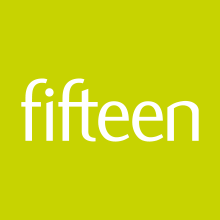Yesterday Mark Zuckerberg announced that they were currently working on, and about to move on to testing, a dislike button for Facebook. Although he had previously shunned the idea in an interview in December, Zuckerberg now seems to agree with the countless individuals who have been asking for a dislike button since Facebook introduced the like button in 2009.
The reason that Zuckerberg has previously dismissed this idea comes down to two main factors.
Dislike button promotes bullying
The main reason Zuckerberg, and a lot of people online, are/were skeptical about a dislike button is that it could promote bullying online. Obviously this is a very big issue, which has probably contributed to the amount of time that it’s taken Facebook to make this decision. Before, if you didn’t like someone’s post, you could just scroll past. With the addition of a dislike button, people will be able to actively dislike things that people share online. This could lead to people being scared to post at all.
But, as Zuckerberg himself pointed out in the interview yesterday, people that are asking for a dislike button on Facebook are doing so because they want to be able display a sense of empathy online. Not every post shared on Facebook is a positive one. Some posts are sad, and users want to be able to show support for these.
Whilst bullying online is a huge issue, will the addition of a dislike button really antagonize this further? We currently have no dislike button, and bullying is still very much a problem.
Facebook is not Reddit
Reddit currently has a voting style system for posts. People can “upvote” or “downvote” posts to push them further up or down the feed. This means that the most liked posts are the first ones presented when you open a particular sub-reddit. Facebook isn’t Reddit, so they don’t want to promote a similar sort of system: likes vs. dislikes.
This is actually fairly easy to overcome. By ensuring that dislikes don’t have any kind of negative effect on a post’s visibility, you eliminate the “voting” element of such a button. Besides, Facebook already allows us to hide or report a post that we don’t want to see.
Can a dislike button be positive?
An easy solution to both of the above issues, and one that Facebook are most likely considering in their current testing stage, is to ensure that dislikes are seen as a positive engagement in the Facebook algorithms. This will not put people off the idea of posting for fear of their posts being “downvoted”.
Also, Zuckerberg has made it very clear that the button is intended for people to be able to quickly emote empathy. Facebook has now acknowledged the need for more variety in available interactions, and whether that comes in form of a dislike button, or something completely different, we eagerly await the results of their testing.
